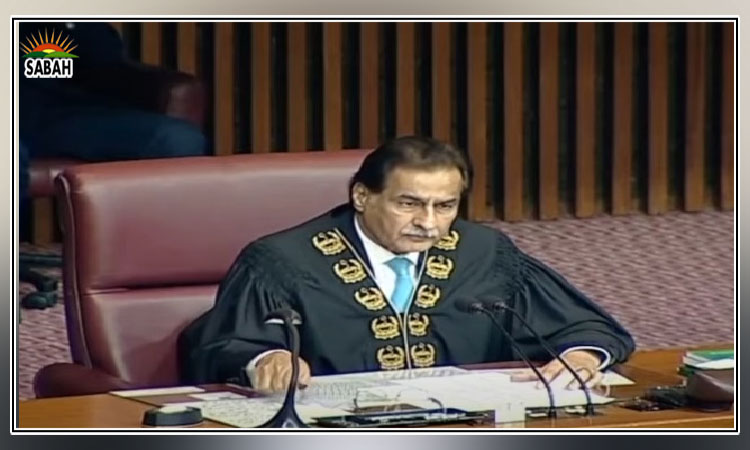Probing the malaise of public sector universities… Dr S Zulfiqar Gilani
To date, in Pakistan there are about 230 universities and counting. A majority of these are in the public sector which, leaving aside colleges, provide higher education to the bulk of our youth. Notwithstanding minor variations, there are some generic problems with which our public sector universities are bedevilled.
The broader purpose of a university is to provide high-quality education, foster scholarship and research; and as well produce enlightened citizens with strong moral and ethical values. Further, it is a truism that a society cannot achieve economic progress, political stability, and peace without a better-educated citizenry. However, the public sector university is faring poorly in that regard, and ill-prepares individuals who can successfully meet the challenges of life.
Institutionally, the public university is like any other government bureaucracy, with the overall hallmark of bureaucratic centralisation. The governance structures, and procedures, of universities foster a non-academic culture, and academic matters are a low priority for most of the faculty, leadership, management, and administration. The autonomy of the university is compromised, with political, bureaucratic, and Higher Education Commission (HEC) interference. Management and decision-making are centralised and largely informed by non-academic considerations. Accountability, as well as financial systems, are deeply flawed, and even those are often ignored or bent in practice. Finally, performance-based meritocracy is the exception rather than the rule.
The key human resource of a university is its faculty. However, there are serious problems with the procedures of faculty induction, as well as their career progression. For example, faculty career progression is primarily based on the number of research publications. Consequently, many faculty engage in sham and shoddy research, plagiarism, and fake publications, and as well ignore teaching and other services. There are rules and procedures for their induction and career progression, but they are primarily clerical and fail to meaningfully distinguish between the deserving and the chaff. And like all government bureaucracies, often the university weeds out or sidelines the deserving, and the undeserving get promoted, and this vicious cycle is self-perpetuating.
The Vice Chancellor (VC) has a pivotal role in the quality of education, management, and administration of the university. However, the appointment of the VC is a bureaucratic exercise with scant consideration of abilities, competence, and integrity. Detailing the flaws in the selection of the VC would take us too far afield, but suffice it to say that, barring exceptions, most VCs contribute more to the deterioration of the quality of education and administration, rather than their elevation, and as well they oppose reform. Further, recently there have been instances of individuals being repeatedly appointed VCs of different universities after their tenure ends in one, much like a civil or military bureaucrat/officer being transferred from one posting to another. Again, there are rules and procedures for the appointment of a VC, but their flaws are evidenced by the poor performance of most VCs of public universities.
The situation is no better regarding other university personnel. In summary, the HR problem that undermines provision of better-quality higher education in a public university is the dearth of leadership, faculty, and personnel of management and administration with adequate competencies, work ethic, and integrity.
The flawed governance of universities and their poor leadership, faculty, and HR, has resulted in academic ossification, best illustrated by the failure in the foundational responsibilities of designing and developing curricula and courses. Currently, the HEC develops curricula for different subjects through committees, and most of them are quite shoddy. The approved curriculum is then sent to universities. Although the university has autonomy to adopt, revise, or reject them, their adoption is over-determined as the university feels obliged to placate the HEC, which has representation in the academic bodies and controls the purse strings of public universities.
The availability of the HEC curricula and courses fosters intellectual laziness in the faculty as they have no reason to develop the skills of course and curriculum design and development. Thus, faculty is teaching courses designed and developed by a committee in which they have no intellectual investment. Then there is also the problem that a majority of faculty has poor teaching skills, which results in parroting and/or dictation of notes or text materials. So, poorly developed courses (by a committee) are being taught poorly by faculty and the outcome is a foregone conclusion: no, or incidental student-learning.
It is a testament to our youth that despite the poor education being provided by our public universities, some are graduating with adequate competencies, skills, and knowledge. The challenge is to reform public universities so that they produce greater numbers of competent graduates. Unfortunately, the relevant stakeholders (governments, HEC, academe) dont seem to have the will, or the capability and imagination, to rise to the challenge. Consequently, the rights of the majority of our public university students are being violated as they are spending money and time to receive worthless degrees, which also has numerous and serious negative societal fallouts: we are paying a very heavy price for failing to heed the adage that a mind is a terrible thing to waste.
Courtesy The Express Tribune












